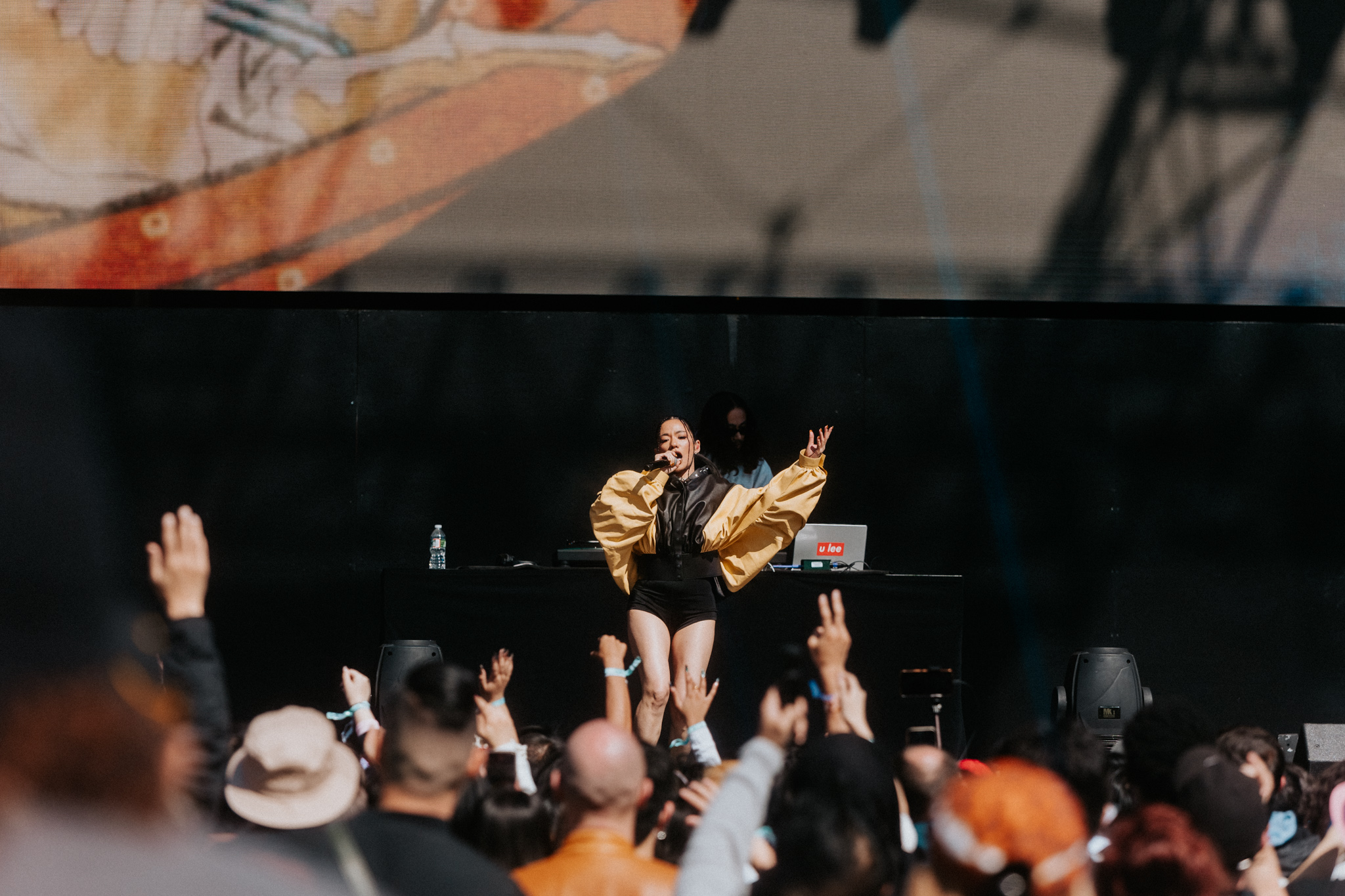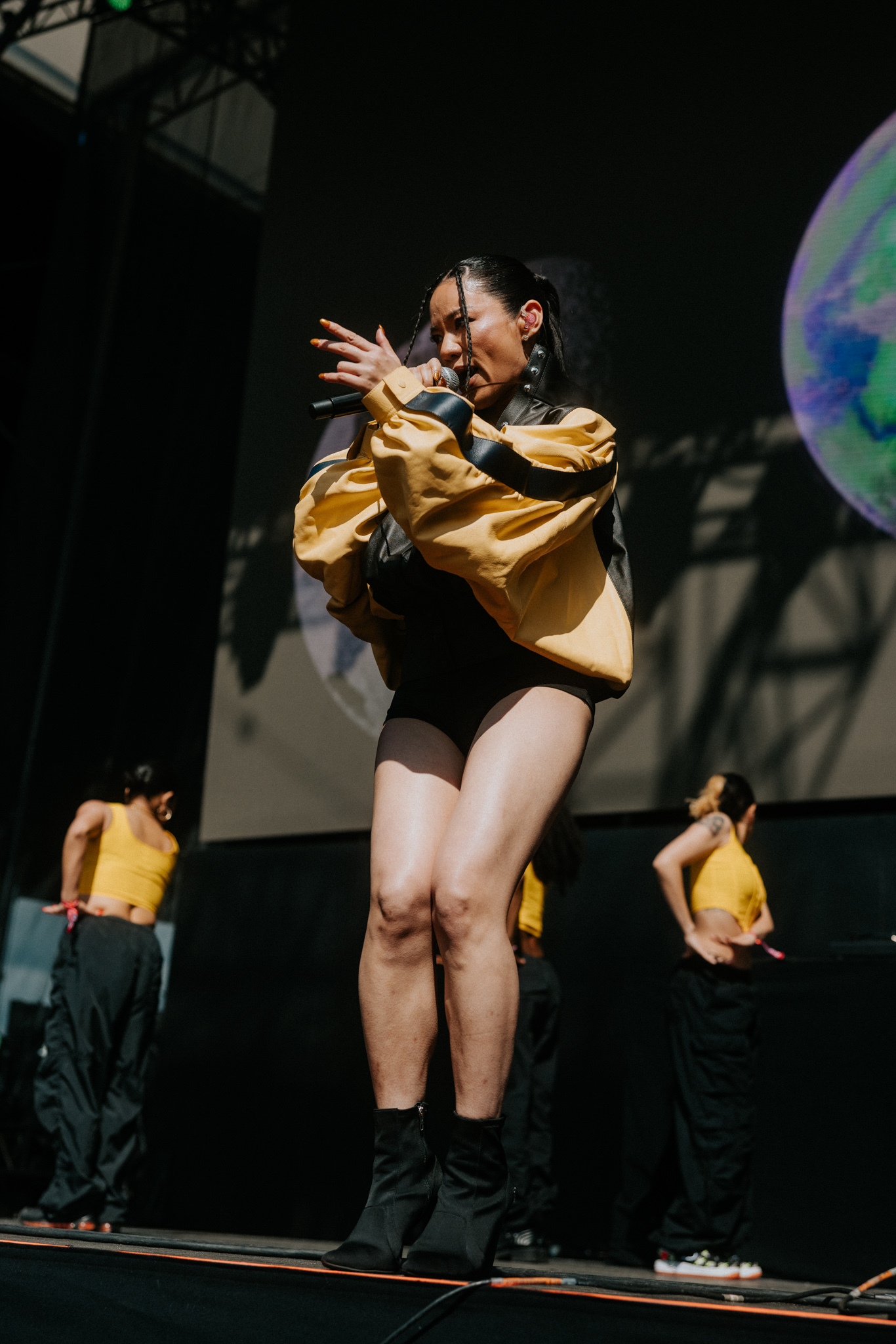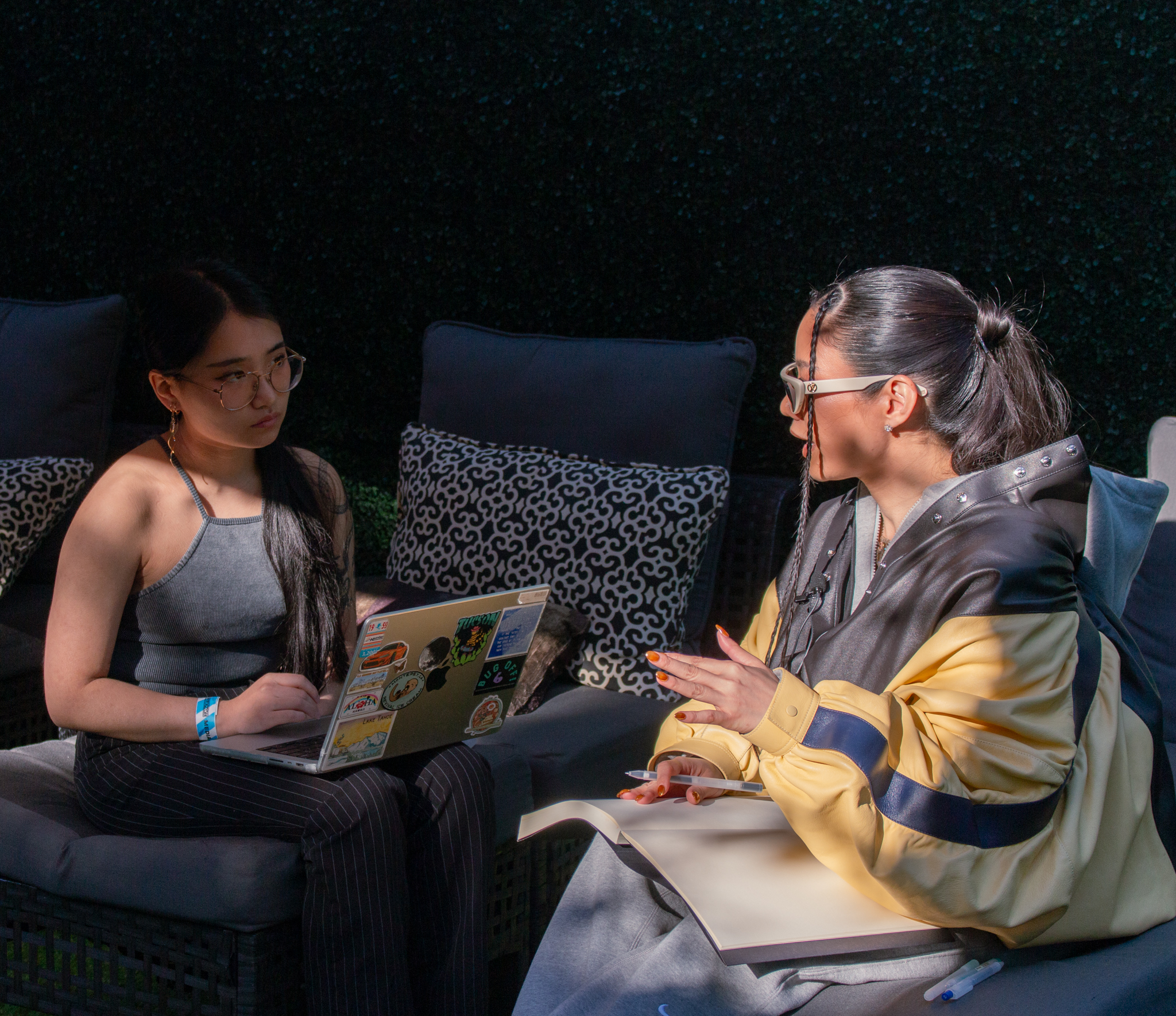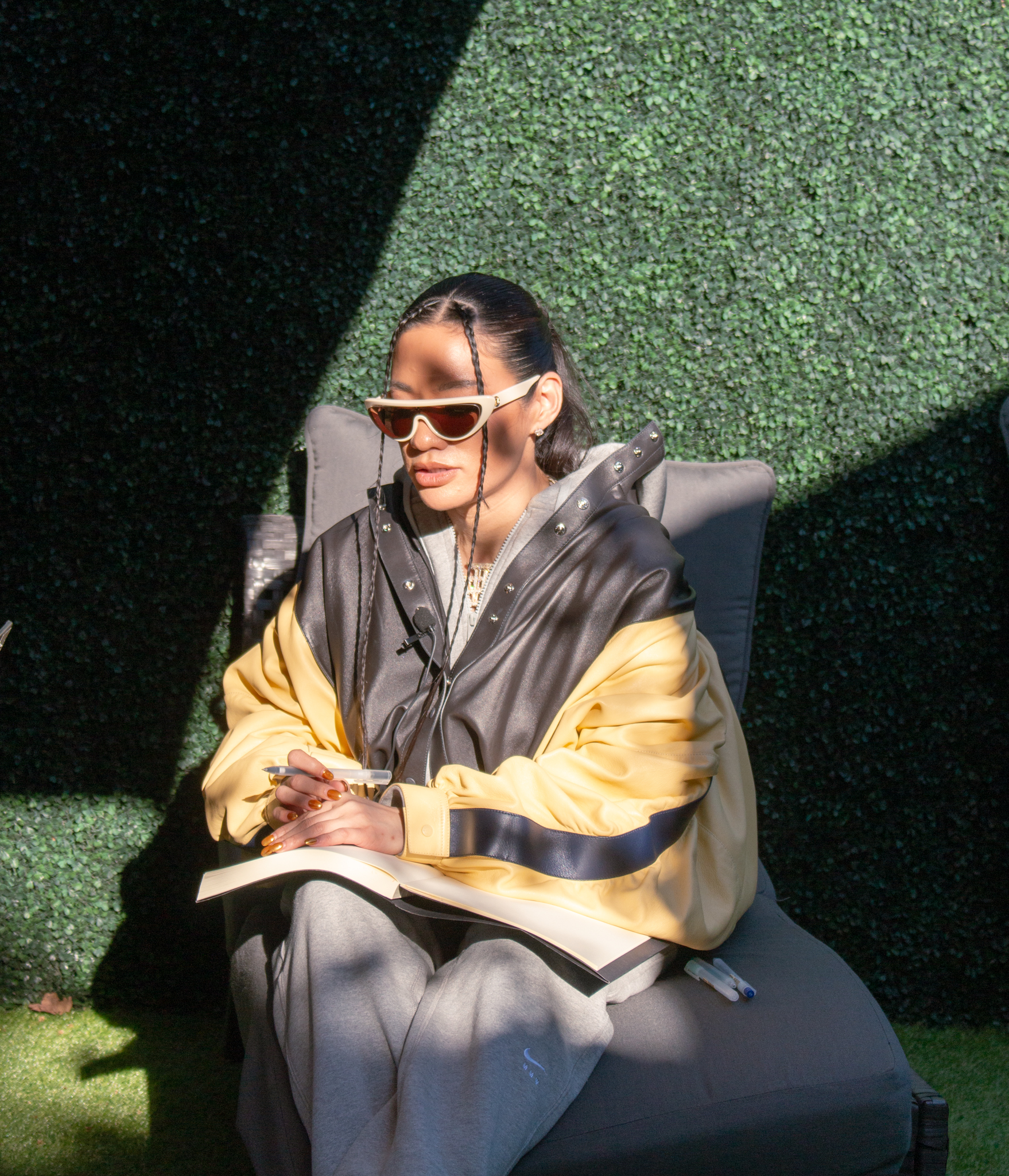Story / Jennalynn Fung
Photos / Jennalynn Fung, Lindsey Blane
In 2024, rap is so mainstream that it is frequently appropriated, with many artists today choosing to adopt the gangster aesthetic and mumbling about the streets – despite the fact that they come from a comfortable home in the suburbs. Disingenuous lyrics, coupled with a detachment from Black communities and a failure to acknowledge rap’s roots in Black culture, are all too common, but Awich, a Japanese female rapper, transmutes her real-life hardships into powerful, old-school-reminiscent tracks on her iconic discography.
Born Akiko Urasaki in Okinawa, the poorest prefecture in Japan and subject to heavy US military presence, she was exposed to rap music early on. As a young child, she idolized Tupac, effectively learning English from his rap music.
She began writing at age 13, and performing the year after. In 2006, when she was 18, she released an album called “Asian Wish Child,” which is what her artist name – Awich – literally means in Japanese characters (エイウィッチ). Though she landed a contract with a Japanese label, she begged her parents and the company for the opportunity to move to the United States, if only for a brief period.

Photo: Lindsey Blane
At 19, she moved to Atlanta, Georgia, where she studied business and marketing. However, during one of her walks to her university, a guy driving on the road stopped near her. He asked her where she was going and if he could give her a ride. She refused at first, but after he struck a deal with her – he’d drive her to school on the condition that she spend time with him. So, she did. This man became Awich’s husband, and father of her child.
Awich became integrated into the culture and community of Atlanta beyond her husband, though; she was also a tattoo apprentice. She often drew symbols like hands breaking free from handcuffs – this same symbolism that imbues and characterizes her music.
Unfortunately, due to gang violence that her husband was involved in, he was later jailed. A few months after he was released, Awich received a call from her husband’s mother that he had been shot and killed, at which point Awich returned to Japan. She looks back on this time as the lowest point in her life – even her daughter knew.
“When she was three and I was 24, we lost her dad,” Awich said solemnly. It was clear she had thought and spoken about this part of her life many times. “And after that, I was depressed – she had to help me. She was telling everybody, ‘no, don’t bother my mom, she’s tired.’”

Photo: Lindsey Blane
Awich says that her relationship with her daughter was more of a partnership from the very beginning. “The process is not just me caring for her. It’s not like raising a child. She’s been my friend and my number one supporter. She helped me learn what love is and loving without fear.” Her daughter’s unconditional support gave her a consistent home to return to, and the confidence to pursue music again. “She helped me get up and do music again. I promised my daughter that I would be the best.”
What makes her music so impressive in comparison to other artists, though, is that she hasn’t had to adopt a persona disconnected from her reality. She doesn’t just rap about the streets; she has lived through them, and her lyrics are imbued with the weight of her experiences. Unlike many artists who fabricate stories of hardship, her stories are authentic and written with unfiltered honesty. You can hear the pain, struggle and courage in her voice in songs like “Queendom,” “THE UNION,” “Remember ft. Young Juju,” and “RASEN IN OKINAWA” as she addresses themes of love, loss and empowerment.
“You will find the struggle, and you’ll find a way to overcome it. I talk about it in my song and that’s why people are gravitating towards it — because this [song] is [about] my life.” Her resilience and determination is an offering of camaraderie and solidarity with her listeners who may also be experiencing hardship.
Today, she calls her fans her queendom. Rather than viewing herself as a queen solely in terms of power or superiority, though, she sees herself as responsible for protecting and serving others. For Awich, a queen is someone who provides a space for people to be themselves. “There’s no queen or king without the people.”

Photo: Jennalynn Fung
In the beginning, she was hesitant to adopt the term, but she realized she could dedicate her time and energy for not only Okinawan artists, but female rappers in Japan and Asia. “We are inspiring each other to raise the platform,” as she did in her track “Bad Bitch Bigaku Remix” which featured NENE, LANA, MaRI, AI, and YURIYAN RETRIEVER. What’s more, she did a Korean rendition of the same song with Korean female rappers. “I had to trick my brain,” she laughs, reflecting on rapping in a third language.
She continues to inspire her own daughter, who now seeks to become a performer. She has even danced on Awich’s tour. “She kills it every time,” the rapper beams. “She’s such a great performer, and she wants to learn how to write music and how to sing. She’s taking lessons.” Awich and her daughter even wrote two songs together on her albums.
Words have power for Awich. She talks about how harnessing both English and Japanese in her music helps her get across subliminal messages. “I think languages have personality of [their] own, and it affects the personalities of the people who live in [that] language area.” She believes Japanese is an indirect language, whereas English is the opposite. “I use English when I want to be direct.” When she wants to be metaphorical, symbolic and leave things up to interpretation, she uses Japanese. The seamless blend of the music reflects her own bicultural experiences and broadened artistic perspective, and makes it even more interesting that she is deliberately creating two albums – one for Japan, and one for the United States.
Becoming in tune with how language impacts global interaction is one of the reasons why Awich funds a student program with Okinawa kids – she aims to give 100 kids the opportunity to stay and learn the language from English-speaking families within the prefecture. “You can experience what it’s like to live and speak English or think [in] English,” she says. Three of the 100 students also will get the chance to go to Atlanta for a month. The rapper believes in the importance of this program because English expands your world – beyond America, “to different places in the world and communicate with people in English.”
Uplifting her community and creating legacies to be passed on seems to be second nature for Awich. Everything she does can be traced back several generations. She has her own sake, Habush, which has the venom of a pit viper infused into it (minus the venom). “It’s Okinawan tradition because it was a poisonous snake that used to hurt our families and the animals that we keep. So, we had to kill them. But as Okinawan people, we have to make something out of nothing type-people. It’s like taking what hurts us – Okinawans believe it would give them the power to be stronger.”
This determination to overcome is so built into Okinawan culture that there is a common saying – nankurunaisa (なんくるないさ) meaning: “it will be whatever it will be.” Awich says that when she first moved back to Japan and decided to make music again, she had her moments of self-doubt. But, she would always tell herself: “whatever happens, it’s okay, because there’s no right or wrong.”

Photo: Jennalynn Fung
Writing bestows the same power – to turn nothing into something visceral and palpable to others. Awich revealed that during her time as a rising artist, it was her writing that reigned in her faith in self. “Keeping a diary plays a huge part,” she says. “It’s so important for understanding yourself. You know, people talk about self-love, but you can’t love yourself if you don’t understand yourself. If you don’t know what you want, or if you don’t know what you want to do, what you don’t like and really love…” her voice trails off, as though looking for the English word to communicate the bigger picture that she sees in her mind. “You have to look at yourself from a birds eyes [view]. You got to understand your process as a whole. Writing it down and looking at it gives you that perspective, and then you understand – I really love this.”
Beyond writing, Awich’s drawings during her tattoo apprenticeship, and the designs she gravitates towards, show her pursuit of meaningful impact and longevity. She has no ink today, but states that when she is “wrinkly,” she will get the traditional Okinawan women’s hand tattoos, as though a tribute to the strong women who came before her.
Generations from now, it’s likely that women beyond Okinawa will aspire to be the rapper, role model, and Queen that Awich empowers everyone to be in her music and daily life.

